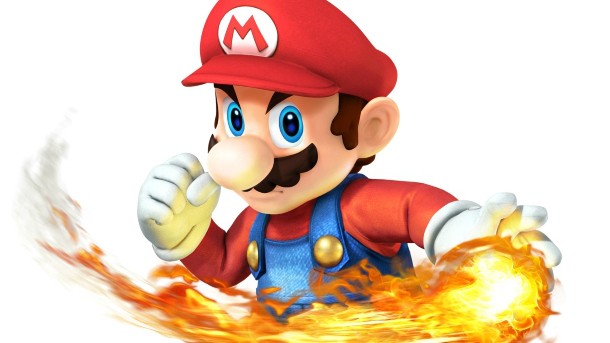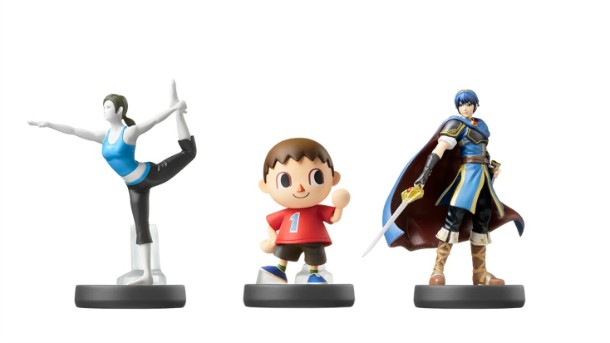Opinion – The Ruthless Reality Of Nintendo’s Friendly Face

I love Nintendo. Like many who enjoy video games, I have fond memories of holding a Super NES controller and playing Super Mario World, or standing in awe of Ocarina of Time on Nintendo 64. Nintendo has created some special memories for a generation of gamers, but it has a darker side that gets overlooked.
Nintendo’s primary identity has been a colorful beacon of family friendliness, happiness, and positivity. The company has tried to appear as a friend to its customers; it wants to be the comforting entertainment we rush to when we’ve had a rough day at work, or the reliable pal with whom we can spend hours exploring. Nintendo holds a special place in our hearts, and its leadership knows that, which is why so many of its games attempt to strike unique nostalgic notes no other company can claim.
Nintendo’s image is an effective way to make its brand appealing to gamers, but there are several instances where Nintendo has proven to be anything but friendly. It all starts with a history of obsessive control that dates back to the ‘80s; Nintendo’s desire to dominate the industry had rivals and news anchors throwing around words like “monopoly, “anti-trust,” and “price fixing” in the late ‘80s and early ‘90s. From a licensing lawsuit with Atari and Tengen to an actual rebate issued to customers by Nintendo in wake of price fixing allegations, the company did all that it could to maintain its control on the industry.
The company also has a rough track record of working with third-party publishers (evident by the lack of third-party software support on many of its consoles). Even with the Wii U’s lead-up to launch, Nintendo vowed to work with more third-party publishing partners to bolster its Wii U software library – a mission that fizzled out quickly as publishers like Ubisoft and EA jumped ship shortly after launch.
Whether you’re talking Nintendo wanting to stick with proprietary cartridges in the N64 days (which were more difficult and expensive to develop for than PlayStation’s discs), or the fact that Nintendo doesn’t put the same marketing efforts behind third-party games that Sony and Microsoft do, Nintendo has continually paved the way for the common player argument that “you don’t buy Nintendo consoles for third-party games.”
That same sense of control can come back to bite the company when talking about how readily available its products are at retailers. Product shortages – whether intentional or otherwise – are nothing new for the company. The NES was hard to come by in the ‘80s in the months after its launch, and everyone remembers the mad rush to secure a Wii during its heyday.
The approach Nintendo has taken with its popular Amiibo product line is testing the patience of its faithful fans. A shortage of collectibles like Amiibo figures is different from consoles, because the hunt is over once people locate a system – but the search for new waves of Amiibos is ongoing. Continued scarcity is a great way to wear down the most dedicated and deter them from continuing to support the product.
The cuteness and collectability of Amiibos have been harshly overshadowed by the frustration of obtaining the ones you want, leading many to feel wronged by the company. Even worse, Nintendo witnessed the stress the previous Amiibo launches caused its most dedicated fans, and it pressed on with the Wave 4 pre-orders in the same manner, all but guaranteeing the same disaster. To further exemplify that Nintendo is not listening to those hardcore fans, the Twitter account of Nintendo of America sent out two tweets oblivious to the cries of its fans within 24 hours of the Amiibo pre-order madness.

An even more egregious offense, Nintendo has also handled its relationship to gamers poorly in regards to YouTube. Nintendo fan friendly image is shattered the moment you go on YouTube to share your enthusiasm for its games. In these circumstances Nintendo brings down the hammer – not allowing you to monetize the video unless you’re a part of its restrictive “Creators program.” Even if you do join the Creators program, Nintendo takes the money earned from your stream and merely “gives you a part of the proceeds it receives from YouTube for your Nintendo-related video.”
Nintendo’s plan is within its rights as of now, but with Fair Use protecting criticism, news reporting, and satire, and the concept of “let’s play” videos going untested in courts thus far, Nintendo could be treading dangerous waters. Popular YouTube personalities have spoken out against Nintendo’s policies, with PewDiePie saying, “The people who have helped and showed passion for Nintendo’s community are the ones left in the dirt the most.” In Angry Joe’s recent video, he labeled Nintendo “anti-YouTuber” and called Nintendo “f***ing greedy” for its policies.
With PewDiePie and Angry Joe burned by these policies, both of them have come out saying that Nintendo games will be less of a focus going forward. With PewDiePie having nearly 36 million subscribers on YouTube, and Angry Joe holding nearly 2 million, Nintendo’s games are appearing in far fewer feeds than they were before these policies went into place. In addition, the vast majority of game developers and publishers embrace the potential of YouTube to spread awareness and positive word-of-mouth, making Nintendo’s outlier approach seem grumpy and confrontational.
As a business, Nintendo has no obligation to be your friend. The company’s primary objective is to turn a profit. But when it takes down a fan-made remake of Super Mario 64’s first level, the company isn’t acting hostile toward its fans, it’s simply protecting its intellectual property the way many publishers in this and other industries do. However, parading a plump, smiling plumber and all of our favorite characters from our childhoods doesn’t excuse the company from any fallout it should receive when it does do something worthy of criticism.
Nintendo’s fans are die-hard, but some of the actions Nintendo has taken feel overly self-serving, and an outside observer might conclude that Nintendo is alienating its most staunchly passionate supporters. But the landscape of gaming industry is always changing, and Nintendo is doing what it must to make money. Unfortunately, many of the actions it is taking are alienating those who love the company the most.
This isn’t me stepping away from my love of Nintendo. Just as Nintendo wants to portray itself as a friend, I want to make friendly gesture and intervene with a company that holds a special place in my heart. If Nintendo does carry on with these practices, it risks irreparably damaging important relationships with potential third-party partners (if there are any salvageable relationships left) and, more importantly, its most passionate fans. Once those are gone, who will be left to support the company that many of us love? The industry has matured since the days of the NES, and it’s time for Nintendo’s practices to mature along with it.

Get the Game Informer Print Edition!
Explore your favorite games in premium print format, delivered to your door.
- 10 issues per year
- Only $4.80 per issue
- Full digital magazine archive access
- Since 1991









